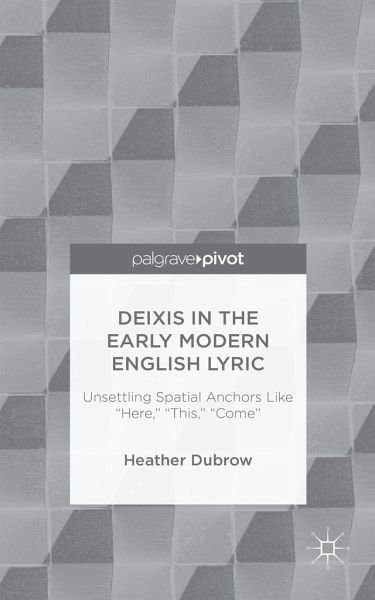"Dubrow's tough-minded, generous, learned, sensitive, and thoroughly illuminating little book rarely strays from its narrow path in early modern English poetry, but it shines a bright light that for me instantly caught Dante in its beam. ... Dubrow's many close readings are invariably subtle, regularly adjudicate among numerous recent and older critical essays, and contribute both insights and resources." (Marshall Brown, Modern Philology, Vol. 116 (3), February, 2019)
"Dubrow argues for a productive crisis in the situational: the 'spatial anchor' words mentioned in the book's title often point not to fixed location but to volatility, fluidity, and uncertainty. ... Despite its brevity, Dubrow's study does an admirable job of indicating what theoretical and historico-cultural issues are at stake in these displacements." (Studies in English Literature, Vol. 57, 2017)
"The book examines the way deictics both set up spatial relations and collapse them, showing questions of proximity and distance, inclusion and exclusion, to bear incisively on the speaker's ... agency and power. ... this book opens up infinite riches in a little room, its concentration on 'one historical period, one type of deixis, and one literary mode' ... making space for comparisons with the practices of contemporary conceptual art-and even winemaking-as well as other historical periods and literary examples." (Catherine Bates, Renaissance Quarterly, Vol. 70 (1), 2017)
















